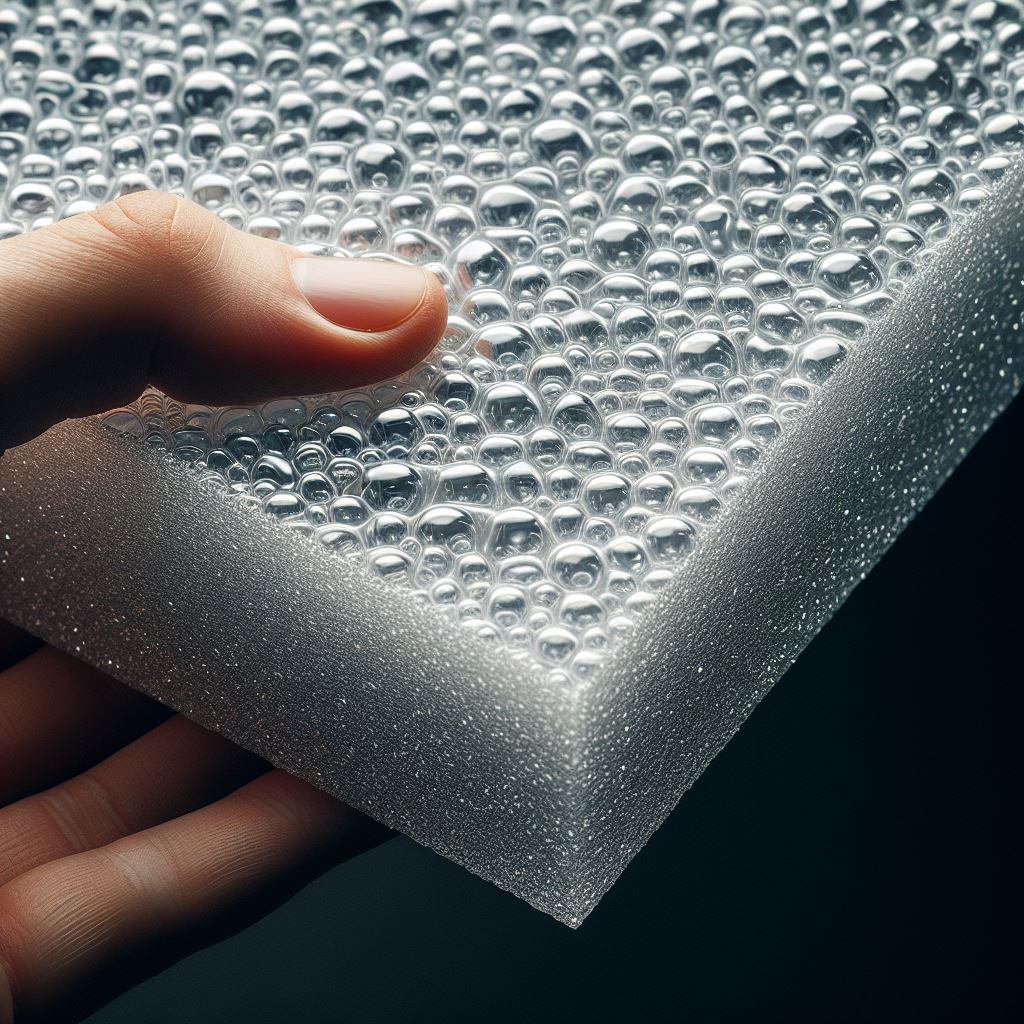Expanded polyvinyl chloride (EPVC), also known as PVC foam board, is a surprisingly versatile material with a wide range of applications. Often overshadowed by its more rigid cousin, standard PVC, EPVC offers a unique combination of lightweight strength, weather resistance, and ease of fabrication. This makes it a valuable tool for everything from crafting and DIY projects to industrial signage and construction applications.
Understanding the Material:
EPVC is creating by combining PVC resin with a blowing agent, which creates a closed-cell foam structure throughout the material. This structure gives EPVC several key advantages:
- Lightweight: While maintaining rigidity, EPVC is significantly lighter than solid PVC, making it easier to handle and transport.
- Durable: The closed-cell structure makes EPVC resistant to moisture, corrosion, and many chemicals. It also offers good impact resistance, making it suitable for demanding environments.
- Weatherproof: UV rays and extreme temperatures do not affect EPVC, making it ideal for outdoor applications.
- Workable: You can easily cut, drill, sand, and shape EPVC using common woodworking tools. This allows for a high degree of customization in various projects.
- Versatility: EPVC comes in a variety of thicknesses, sheet sizes, and even colors, allowing for a broad range of uses.
Applications of Expanded Polyvinyl Chloride:
Signage & Displays: Due to its lightweight nature, weather resistance, and smooth surface, EPVC is a popular choice for creating signs, banners, and displays. It can be easily painted, printed on, or laminated for added customization.
Construction & Fabrication: EPVC sheets are used in various construction applications, such as trim, soffits, and fascias. It can also be used to create lightweight partitions, furniture components, and even boat building components.
DIY & Crafts: EPVC’s versatility makes it a favorite among DIY enthusiasts. It can be used for creating everything from custom furniture and shelving to decorative wall panels and cosplay armor.
Other Uses: EPVC finds applications in various other industries, including:
- Marine industry: Used for boat building components, marine signage, and even in some kayak construction.
- Pool & Spa applications: Can be used for pool surrounds, trim, and even custom filtration components (depending on chemical compatibility).
- Retail & Trade Shows: Lightweight and easy to fabricate, EPVC is ideal for creating displays, product stands, and promotional booths.

Working with Expanded Polyvinyl Chloride:
EPVC is a relatively user-friendly material. Here are some tips for working with it:
- Cutting: Use a sharp utility knife, jigsaw, or table saw for straight cuts. For intricate cuts, a CNC router can be used.
- Drilling & Fastening: You can use standard wood screws and drill bits to fasten EPVC sheets. For thicker sheets, it is recommended to use pilot holes.
- Joining: You can join EPVC using various adhesives specifically formulated for plastics. Special cements are available for creating stronger bonds.
- Finishing: You can paint EPVC with acrylic or latex paints. You can also laminate it with vinyl or other films for added protection or decoration.
Safety Considerations:
While generally safe for use, it’s important to follow some basic safety precautions when working with EPVC:
- Dust: Cutting EPVC creates dust particles. Wearing a dust mask is recommended, especially when working indoors.
- Fumes: When using heat for cutting or bending EPVC, ensure proper ventilation to avoid inhaling fumes.
- Sharp edges: Freshly cut EPVC can have sharp edges. Wear gloves to protect your hands from cuts.
Environmental Impact of Expanded Polyvinyl Chloride:
EPVC, like most plastics, has environmental considerations. While it is durable and can last for many years, disposal can be an issue. Check with local regulations for proper disposal methods. Some manufacturers offer recycling programs for EPVC, so be sure to inquire about these options.
The Future of Expanded Polyvinyl Chloride:
EPVC is a continuously evolving material. Manufacturers are constantly looking for ways to improve their sustainability and performance. Ongoing research into using recycled materials in EPVC production makes it a more eco-friendly option.
Conclusion:
Expanded polyvinyl chloride is a versatile and cost-effective material with many applications. Its lightweight nature, durability, and ease of fabrication make it a valuable tool for professionals and DIY enthusiasts. By understanding its properties and working methods, you can unlock the potential of EPVC for your next project.
Raw Material For PVC: Building Blocks Of The Material






